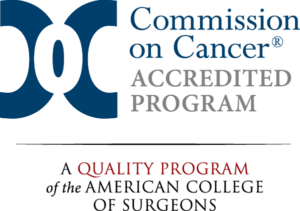Prostate Cancer Care at Maimonides
At Maimonides, we understand men don’t like to go to the doctor—especially when it involves a prostate exam.
But prostate cancer is the second most common form of cancer among New York City residents. It’s also a leading cause of cancer-related death among American men.
The good news is, modern prostate cancer screening now includes a blood test that can detect cancer early, when it’s easiest to treat. And prostate cancer is usually slow-growing—so the sooner you identify it, the more time you have to explore your treatment options.
Even if you receive a prostate cancer diagnosis at a later stage, you still have options at Maimonides Cancer Center. As Brooklyn’s most comprehensive prostate cancer program, we have the tools to treat every stage of prostate cancer. We even care for patients whose cancer has spread beyond the prostate or those with recurrent prostate cancer (when cancer comes back after initial treatment).
Award-Winning, Multispecialty Prostate Cancer Treatment
Maimonides Cancer Center is the first nationally accredited cancer center in Brooklyn. Our prostate cancer program also has received accolades, including:
- America’s 100 Best Hospitals for Prostate Surgery by Healthgrades, which rates hospitals using independent, objective data. Since Healthgrades achievements are based on clinical outcomes, this award is recognizing our team for superior care for Prostate Surgeries.
- We received a five-star rating from Healthgrades—its highest possible ranking—for prostate removal surgery. We earned this rating because our patients consistently have excellent outcomes following prostatectomy (surgery to remove the prostate).
Maimonides cancer specialists also have a history of bringing important new treatments to Brooklyn. For example, we were the first hospital on the East Coast to offer an advanced form of high-intensity focal ultrasound (HIFU). This non-invasive treatment option targets prostate cancer confined to the prostate gland. We were also the first hospital in Brooklyn to offer irreversible electroporation (IRE) – a minimally-invasive treatment for prostate cancers in certain locations within the prostate. These pinpoint treatments for prostate cancer preserve normal tissue, resulting in fewer side effects and better quality of life for men with prostate cancer.
A Prostate Cancer Team You Can Trust
When you receive cancer care at Maimonides, you’re at the center of a team dedicated to your treatment and recovery. Our prostate cancer team includes:
- Urologic surgeons
- Medical oncologists
- Radiation oncologists
- Nurses specializing in cancer care
- Pathologists
- Pelvic floor physical therapists
- Psychologists or psychiatrists
- Social workers
Each team member has experience caring for people with prostate cancer. They work together to make sure your treatments are well-coordinated—and to ensure you feel comfortable, supported, and well-informed.
Get a Second Opinion About Your Prostate Cancer Treatment
What is Prostate Cancer?
Prostate cancer is cancer that grows in the prostate. The prostate is a small gland found only in men; it sits between the bladder and penis.
Prostate cancer tends to grow slowly, and early on it may not cause symptoms. That’s why it’s important to follow your doctor’s recommendations for prostate exams (also known as prostate cancer screenings). A prostate exam can find cancer even before you have symptoms.
Prostate Cancer Symptoms
Symptoms of early-stage prostate cancer are rare but usually include:
- Trouble urinating – You may have a slow or weak stream or find yourself urinating more often, especially at night.
- Unusual bleeding – You may have blood in your urine or semen.
You’re more likely to develop symptoms if you have later-stage cancer (meaning it’s grown or spread beyond the prostate). In addition to the symptoms above, you may have:
- Erectile dysfunction (trouble getting an erection)
- Numbness or weakness in the legs or feet caused by your tumor pressing against your spinal cord
- Loss of bladder or bowel control
- Pain in the ribs, lower back, or hips (caused by cancer spreading to the bones)
- Unexplained weight loss
- Unusual fatigue
Prostate Cancer Risk Factors
Any man can develop prostate cancer, but certain factors may increase your risk. These factors include:
- Age – Your chances of developing prostate cancer go up after you turn 50.
- Ethnicity – African American and Caribbean American men are more likely to develop prostate cancer than white, Asian American, Hispanic, or Latino men.
- Family history – Having a father or brother with prostate cancer doubles your risk. So does having a close female relative with breast cancer or other gynecologic cancer.
- Genetics – Doctors have linked inherited gene abnormalities to an increased risk of prostate cancer.
Prostate Cancer Screening and Diagnosis
Prostate cancer can be detected early, increasing your chance of successful treatment—and survival.
A Prostate Exam Can Save Your Life
The American Cancer Society currently recommends men begin prostate cancer screenings at:
- Age 50 if your risk of developing prostate cancer is considered average
- Age 45 if you’re considered high-risk (for example, your father or brother had prostate cancer)
- Age 40 if you’re considered very high-risk (you have more than one immediate blood relative diagnosed with prostate cancer at an early age)
A prostate cancer screening includes one or both of the following tests:
- Digital rectal exam – With this very specific physical exam, your doctor gently inserts a gloved, lubricated finger into your rectum. They assess the size and shape of your prostate gland and feel for any hard or irregular areas that could be a tumor.
- PSA test – This lab test measures the levels of prostate-specific antigen (a specific protein) in your blood. A high PSA level may be a sign of cancer.
You and your doctor will discuss how often you need a prostate cancer screening. This decision considers your risk level, your most recent test results, and whether you’ve had previous treatments for prostate cancer.
Prostate Cancer Diagnosis
If your prostate exam results indicate you might have cancer, you’ll need additional testing. Your doctor may also order tests if you develop symptoms of prostate cancer.
These tests help confirm whether you have prostate cancer or another condition. They can also show your prostate cancer stage (how advanced it is).
Maimonides offers every diagnostic test for prostate cancer, including:
- Biopsy – We use a needle to take tiny tissue samples from your prostate gland. A pathologist will examine this tissue to look for cancer cells. CT scan – This test can help confirm if prostate cancer has spread to nearby lymph nodes.
- MRI scan – An MRI scan can confirm whether cancer has spread beyond the prostate. In some cases, we also use an MRI to help guide biopsy needles to the prostate gland.
- PSMA PET scan – With a PET scan, we inject you with a small, safe amount of radioactive material we can track with a special camera. The radioactive material attaches itself to proteins found mostly in prostate cancer cells. This sensitive test can detect tumor outside the prostate as small as 4 mm!
- Transrectal ultrasound – This test uses sound waves instead of radiation to take pictures of your prostate gland. It can also guide biopsy needles.
Rapid Prostate Cancer Assessments
If you’ve had tests elsewhere that suggest you have prostate cancer, give us a call. Our Rapid Assessment Service will quickly get you in to see a Maimonides cancer specialist—usually within two business days. We’ll review your test results and provide recommendations for next steps, such as additional testing or a consultation to discuss treatment options.
Meet the 1st HIFU Patient on the East Coast – Pasquale Santoro
Prostate Cancer Treatment
If you need prostate cancer treatment, you can take comfort in knowing Maimonides offers every available option. Our services include procedures that minimize side effects and newer treatments that give hope to men with advanced or aggressive cancer.
With so many treatment options, we can create a care plan to best suit your medical needs and personal preferences.
Active Surveillance
If you have early-stage prostate cancer that’s also non-aggressive and slow-growing, you and your doctor will discuss whether to treat you right away or take a wait-and-see approach. This wait-and-see approach is also known as active surveillance or watchful waiting.
Some men prefer to have ongoing blood tests and other follow-up exams that allow their doctor to watch their cancer over time. That’s because prostate cancer treatments—including medicine, surgery, and radiation therapy—can cause side effects such as erectile dysfunction or urinary incontinence (loss of bladder control). And some men never need treatment because their cancer never grows or spreads.
If you’re interested in active surveillance, your doctor will help you understand the benefits and risks.
Cancer-fighting Medicines
There are many oral (by mouth), injectable, and IV medications for prostate cancer—and many more in development. We offer:
- Chemotherapy – Medicines that kill cancer cells throughout your body.
- Hormone therapy – Medicines that stop your body from producing testosterone (a male hormone that helps prostate cancer cells grow).
- Immunotherapy – Medicines that help your immune system recognize and kill cancer cells. Immunotherapy is often reserved for prostate cancer that’s spread to other parts of the body and hasn’t responded to other treatments.
Radiation Therapy
We offer all types of procedures that use radiation to shrink or destroy tumors. Our radiation therapy options include:
- External beam radiation therapy (EBRT)– During EBRT your Radiation Oncologist uses high energy x-rays in a highly conformal way to specifically target your prostate. Our up-to-date equipment and technology configures the radiation to your tumor’s exact size and shape. These techniques help us kill prostate cancer cells without damaging the healthy tissue surrounding them.
- Internal radiation – With internal radiation, also known as brachytherapy, we place one or more tiny implants (such as pellets, seeds, or wires) inside your body. The implants deliver radiation directly to your tumor.
We also offer a type of radiation therapy called systemic therapy. With systemic therapy, you take radioactive medicines (called radiopharmaceuticals) that target your tumor. These medications include:
- PLUVICTO® – Maimonides was the first hospital in Brooklyn to offer this innovative therapy. It treats a specific type of prostate cancer (called PSMA-positive prostate cancer) that’s spread to other parts of the body.
- Xofigo® – This radioactive medication treats prostate cancer that has spread to the bones. Maimonides is one of the few hospitals in Brooklyn that offers Xofigo®.
Ablative Procedures
Ablative treatments kill cancer cells by using extreme heat, cold, or electrical pulses. We offer:
- High-intensity focal ultrasound (HIFU) – This minimally invasive procedure uses high-frequency ultrasound waves to heat and destroy prostate cancer cells. Doctors consider it a “gland-sparing” treatment because it pinpoints the cancer cells without harming the healthy part of the prostate gland. This technique minimizes the risk of side effects, such as erectile dysfunction, associated with more invasive procedures. Maimonides was the first hospital on the East Coast to offer the latest evolution of this treatment, called focal HIFU.
- NanoKnife – NanoKnife is the brand name for a minimally invasive treatment called irreversible electroporation (IRE). It sends targeted, high-voltage electrical pulses into cancer cells. These pulses create holes in the cells, causing them to die. Because this treatment doesn’t use thermal energy (heat), there is less risk to healthy structures nearby (such as your bladder muscles).
Prostatectomy (Prostate Cancer Surgery)
Surgery is one of the main treatments for prostate cancer that hasn’t yet spread. With this procedure, called a prostatectomy, we remove the entire prostate gland. We may also remove some nearby lymph nodes.
Whenever feasible, our urologic surgeons use a less-invasive technique called robotic prostatectomy. With this approach, we don’t have to make a large incision (surgical cut) in your abdomen or perineum (the area between the anus and scrotum) to access your cancer. Instead, robotic technology allows us to remove the prostate gland through a few tiny incisions.
The recovery period after a robotic prostatectomy is usually shorter and less painful than after traditional, open surgery. In fact, the majority of our patients can go home the same day!
Clinical Trials
Our cancer specialists participate in national clinical trials to investigate new treatment options for prostate cancer. By enrolling in a clinical trial, you may be able to try a promising new treatment before it’s widely available. If you’re interested in this option, talk to your doctor about clinical trial opportunities.
Dr. Silver on KevinMD Podcast – An Update on Prostate Cancer Treatment
“Maimonides is at the forefront of minimally invasive, multidisciplinary surgical and medical care, offering men facing a diagnosis of prostate cancer the most advanced technology and the most personalized and customized treatment options available.”
David Silver, MD, Chief, Division of Urology Director, Prostate Center
Maimonides is among the few hospitals in Brooklyn using an advanced treatment called Xofigo® to treat prostate cancer that has spread to the bones and is resistant to hormone therapy
















